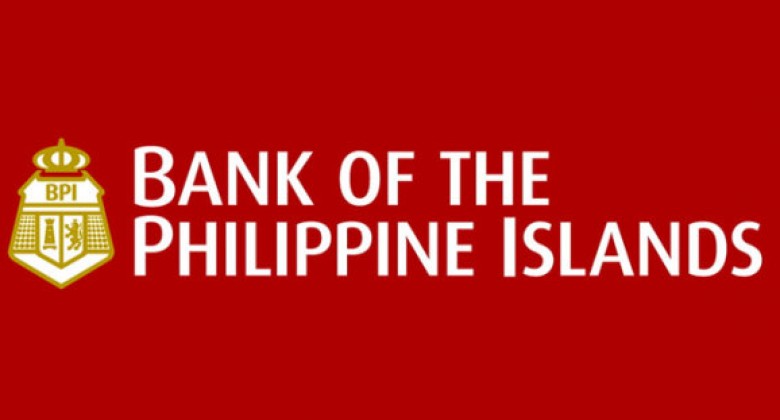Bacolod
The “city of smiles” is more than just positive attitude and pearly
whites. It is a veritable mix of fun-loving people and an eclectic
amalgamation of historic sites and stunning vistas. Sites like San
Sebastian Cathedral, Palacio Episcopal, the Fountain of Justice, the
Diocesan Shrine of St. Thaddeus, Sta. Clara Chapel, the Capitol Park and
Lagoon, the Negros Museum, the Yulo Ancestral House, and the Lizares
Mansion are some of the city’s must-visit sites. So what are you
waiting for? Get your tickets booked without further ado, and experience
Bacolod’s warm hospitality and eye-pleasing wonders.
Baguio
Known as the “Summer Capital of the Philippines,” Baguio City is home to
the Panagbenga Festival, and is one of the most famous summer
destinations in the country because of its temperate climate, friendly
locals, astonishing views, cultural wonders, and excellent food. The
attractions of Baguio include Camp John Hay, Burnham Park, Mines View
Park, Tam-Awan Village, Bencab Museum, and of course, the panoramic view
of the mountains. Explore and have a great adventure in Baguio!
Batangas

Home of Taal Lake and Volcano, Batangas is known not only for the “lake
within a lake,” but also for its rich history and historical sites, and
its strategic location. Now known as the gateway to Manila for the
Strong Republic Nautical Highway (a virtual expressway that includes
oversea trips via RO-RO [roll-on, roll-off] ships), Batangas also has
its International and Container Port, which helps alleviate the freight
and passenger traffic of the Manila Port Area. Aside from Taal Volcano
and Lake, Batangas also has numerous beaches and tourist spots like
those in Matabungkay, Nasugbu, Calatagan, Calaca, Lemery, Taal itself,
San Luis, Anilao, Bauan, Lobo, and Laiya. Island tourist destinations
include: Tingloy, Ligpo Island, Sombrero Island, and Fortune Island.
Even its Industrial Parks and manufacturing industries along the
shoreline add to its unique physical features. Batangas is also known
for the Balisong (butterfly knife), for the panutsa (peanut brittle),
suman (rice cakes), and for its Batangueño shirts and the Barong Tagalog
(Filipino national costume).
Bohol
The tenth largest island in the Philippines. It is one of the bigger islands in 'the Visayas', the group of islands in the
center of the Philippines. Bohol is, together with 72 small islands around
the main island, an island province of 4117 square kilometer.
Agriculture, together with the tourism, are the two dominating economic
sectors of the main island Bohol. Known mostly for its world-famous Chocolate Hills, Bohol is nevertheless
more than first meets the eye. Its rainforests teem with wildlife and
the world-renowned Philippine Tarsier is endemic to this colorful
island. Loboc River, Danao, and Baclayon Church, as well as other small
islands are a must-see when in Bohol. Come enjoy nature and the wild at
its best, without leaving out civilization and historical grandeur and
explore Bohol.
Boracay (Caticlan) Tips: How to go there?
Out of all the islands in the world, Travel+Leisure Magazine chose to name Boracay as its Best Overall Island of 2012. Located in Malay, Aklan, Western Visayas, Boracay is just seven
kilometers long, and less than a kilometer wide at its narrowest point –
a postcard-sized tropical paradise. Boasts everything an island paradise has got, with a lot of add-ons.
Pure, clear, blue waters? Yep. Milk-white sand beaches? Sure thing.
Sun-kissed landscape? Right. Thrilling adventures and activities? Spot
on! Beautiful ladies? Heck, yeah! This island may only be seven
kilometers long and less than a kilometer wide at its narrowest point,
but it’s filled from end to end with astonishing views and great,
unforgettable adventures! Truly everything you need in an island
paradise can be found here, and then some! With a mix of world-class
panorama, excellent service, and access to modern facilities and
conveniences, Boracay is the ultimate vacation destination, bar none.
Busuanga(Coron)
Coron, home to numerous resorts that attract thousand of tourists
year round, is a quiet town located southeast of the island of Busuanga,
at the northern end of Palawan, Philippines. Aside from fishing, the
main industry here tourism, with the place’s World War II shipwrecks
being a popular destination for diving.
Many key attractions are found on Coron Island itself. (Coron Town
must not be mistaken with Coron Island; the latter is located across the
town, accessible by boat.) Coron Island is the ancestral domain of the
Tagbanua indigenous people who are managing the island in a sustainable
way. Here are a good number of beautiful beaches, mostly small and
surrounded by large limestone cliffs and a thriving wildlife. Kayangan,
Twin Lagoon, and Barracuda Lakes, among the most stunning attractions
here, are all great snorkeling destinations.
Camiquin Island
Camiguin
is the second smallest island of the Philippines in both area and
population. It is just 23 kilometers at its longest and just a bit more
than 14 kilometers at its widest. Within this small area lie seven
volcanoes. Lovely little Camiguin is the island “born of fire.”Much of
the island was formed through earthquakes and volcanic eruptions. In the
late 1800s, for example, the eruption of Mt. Vulcan submerged the old
town of Catarman – pushing it below the sea, leaving behind the ruins of
a church and its bell tower.
Many come to this island for diving. But it’s the
volcanoes, the therapeutic volcanic black sand and the white-sand
beaches that tourists are crazy about. Lonely Planet say’s drop it down
next to Hawaii and it wouldn’t look out of place.
- See more at: http://www.govisitphilippines.com/quick-facts.php?province=Camiguin#sthash.Xu4KwRX3.dpuf
The second smallest island of the Philippines in both area and population. It is just 23 kilometers at its longest and just a bit more than 14 kilometers at its widest. Within this small area lie seven volcanoes. Lovely little Camiguin is the island “born of fire.”Much of the island was formed through earthquakes and volcanic eruptions. In the late 1800s, for example, the eruption of Mt. Vulcan submerged the old town of Catarman – pushing it below the sea, leaving behind the ruins of a church and its bell tower. Many come to this island for diving. But it’s the volcanoes, the therapeutic volcanic black sand and the white-sand beaches that tourists are crazy about. Lonely Planet say’s drop it down next to Hawaii and it wouldn’t look out of place.
Camiguin
is the second smallest island of the Philippines in both area and
population. It is just 23 kilometers at its longest and just a bit more
than 14 kilometers at its widest. Within this small area lie seven
volcanoes. Lovely little Camiguin is the island “born of fire.”Much of
the island was formed through earthquakes and volcanic eruptions. In the
late 1800s, for example, the eruption of Mt. Vulcan submerged the old
town of Catarman – pushing it below the sea, leaving behind the ruins of
a church and its bell tower.
Many come to this island for diving. But it’s the
volcanoes, the therapeutic volcanic black sand and the white-sand
beaches that tourists are crazy about. Lonely Planet say’s drop it down
next to Hawaii and it wouldn’t look out of place.
- See more at: http://www.govisitphilippines.com/quick-facts.php?province=Camiguin#sthash.Xu4KwRX3.dpuf
Camiguin
is the second smallest island of the Philippines in both area and
population. It is just 23 kilometers at its longest and just a bit more
than 14 kilometers at its widest. Within this small area lie seven
volcanoes. Lovely little Camiguin is the island “born of fire.”Much of
the island was formed through earthquakes and volcanic eruptions. In the
late 1800s, for example, the eruption of Mt. Vulcan submerged the old
town of Catarman – pushing it below the sea, leaving behind the ruins of
a church and its bell tower.
Many come to this island for diving. But it’s the
volcanoes, the therapeutic volcanic black sand and the white-sand
beaches that tourists are crazy about. Lonely Planet say’s drop it down
next to Hawaii and it wouldn’t look out of place.
- See more at: http://www.govisitphilippines.com/quick-facts.php?province=Camiguin#sthash.Xu4KwRX3.dpuf
The capital of Cebu island is Cebu City.
Cebu City is the first Spanish settlement in the country and the oldest
city in the country. In the beginning of the 16th century the Spaniards
arrived in the southern part of the Philippines. Since then Cebu City
has been the centre of trade and commerce in the southern part of the
Philippines. Many tourists from abroad will directly fly to Cebu's
airport. From Cebu they spread out by boat to the many islands in the
Visayas or they stay on Cebu island. On Mactan island tourism is well
developed. Many dive centres and dive resorts (more than 75) arrange day
excursions and diving safaris to the surrounding dive sites. Not only
in the nearby waters, but especially to the nearby small islands. Cebu
became the country's top tourist destination.
Davao
Dumaguete
The Capital City of Negros
Oriental has many things to discover and adventure: a convenient Gateway City to the Beaches, Dive Sspots, Eco-Adventures of the Province, Siquijor Island, of the
southern tip of Cebu Island, and of Northwestern Mindanao; a quaint
University Town with an atmosphere that’s youthful and fun; and, a
bustling ICT Industry Town with over 9000 employees directly working
in BPOs, KPOs, and ICT-enabled businesses.
A person from Dumaguete City is called a "Dumagueteño". The city is nicknamed The City of Gentle People. The city attracts a considerable number of foreign tourists,
particularly Europeans, because of easy ferry access from Cebu City, the
availability of beach resorts and dive sites, and the attraction of
dolphin and whale watching in nearby Bais Bay.
El Nido
Metro Manila
Puerto Princesa (Palawan )
Siquijor
Subic
Tagaytay
Puerto Galera
Vigan
Zambales























Nice info for updates promo http://goo.gl/uYUqE0
ReplyDelete